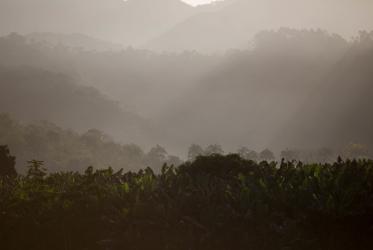Displaying 1 - 19 of 19
Voices from Colombia: “What if we have no land to till?”
15 February 2018
Protect the Amazon, urges WCC statement
22 November 2017
Une déclaration du COE exhorte à protéger l'Amazonie
22 November 2017
G20 summit: call to pray for peace in Hamburg
07 July 2017





